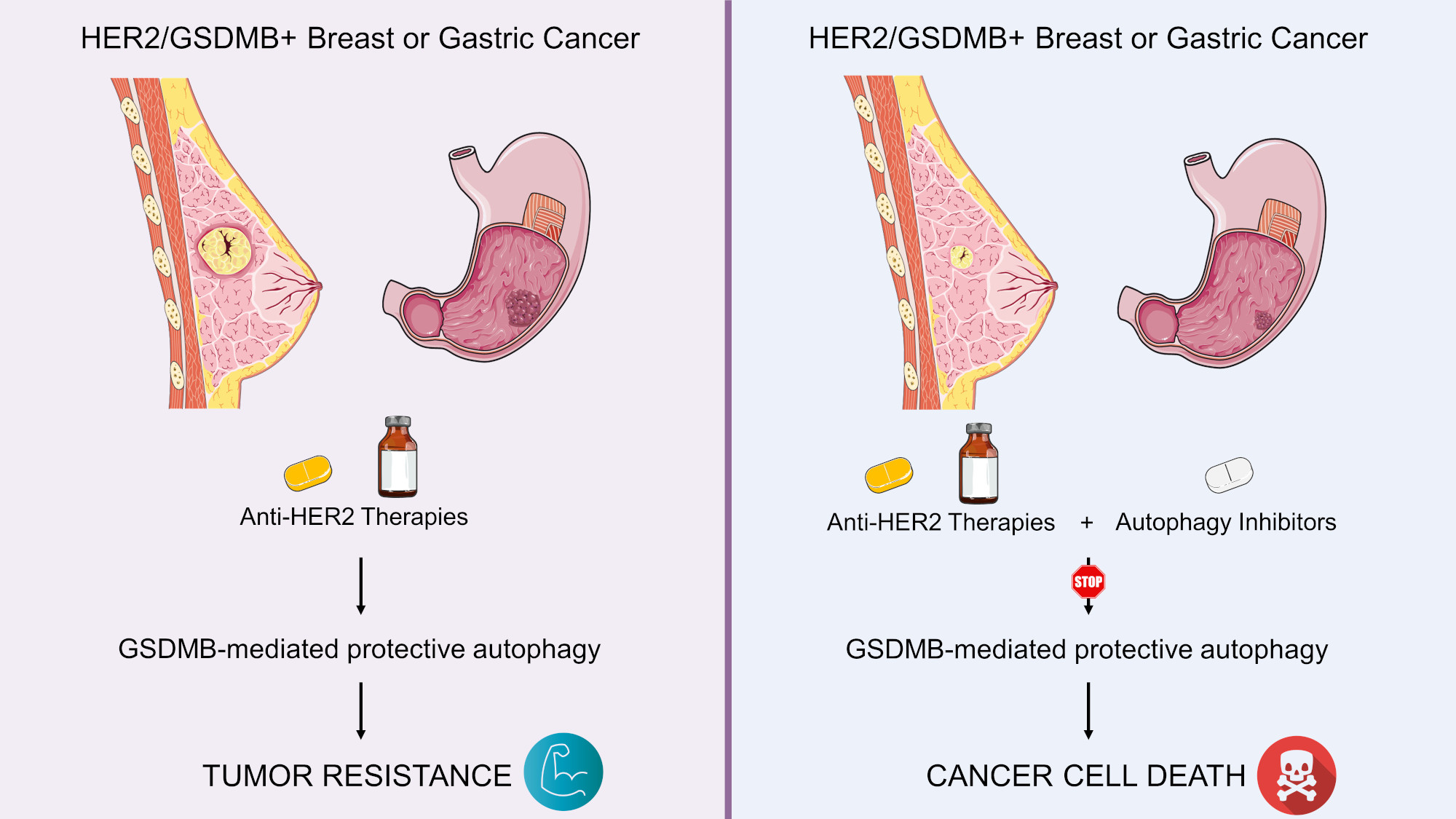Prof. Gema Moreno-Bueno of the IIBM (UAM-CSIC) publishes a relevant study in the Journal of Experimental & Clinical Cancer Research that represents a significant advance in the treatment of HER2 breast cancer tumors
This work, a multi-institutional collaborative effort, has led to the discovery of a new therapy for HER2 breast tumors that also overexpress the Gasdermin-B protein, associated with poor prognosis and resistance to anti-HER2 therapies
The group of Dr. Gema Moreno-Bueno, Professor of the Biochemistry Department of the Instituto de Investigaciones Biomédicas Alberto Sols (CSIC-UAM), also a researcher of the MD Anderson Foundation and CIBERONC, and in collaboration with the laboratories of Dr. David Llobet, IDIBELL, Dr. Ruth Rodríguez, from the University of Barcelona, Dr. Laura Sánchez, from the University of Santiago de Compostela, and Dr. Joaquín Arribas, from the Vall d'Hebron Institute of Oncology (VHIO) and the Hospital del Mar Biosanitary Institute (IMIM), have pioneered a paper on the characterization of a new molecular mechanism of tumor resistance to anti-HER2 therapy in the Journal of Experimental & Clinical Cancer Research.
This study, funded by the Scientific Foundation of the Spanish Association Against Cancer, the Ministry of Science and Innovation and CIBERONC, has deciphered the involvement of the protein Gasdermin B (GSDMB) in promoting resistance to therapy in HER2 breast tumors. Twenty percent of breast cancers are HER2+, a very aggressive subtype with a poor prognosis because, although anti-HER2 therapies are available, many patients develop resistance to therapy.
Dr. Moreno-Bueno's group has been focused for years on the characterization of the effects of GSDMB overexpression/amplification in cancer, demonstrating that high levels of this protein promote tumor aggressiveness, poor prognosis and reduced therapeutic response. Recent research has shown that GSDMB over-expression and/or amplification in response to anti-HER2 drugs leads to the induction of pro-survival autophagy and subsequent resistance to these therapies in both cancer cell models and in various preclinical in vivo models and patient samples.

Furthermore, this study demonstrates that the protective response of HER2/GSMB-positive tumors is specifically reversed with the combined treatment of anti-HER2 therapy and autophagy inhibitors. More importantly, this combinatorial therapy could be effective, not only in breast cancer, but also in other aggressive tumors that overexpress GSDMB and HER2, such as gastric tumors, which represents a significant advance for the treatment of patients with poor prognosis tumors and reduced response to therapy.